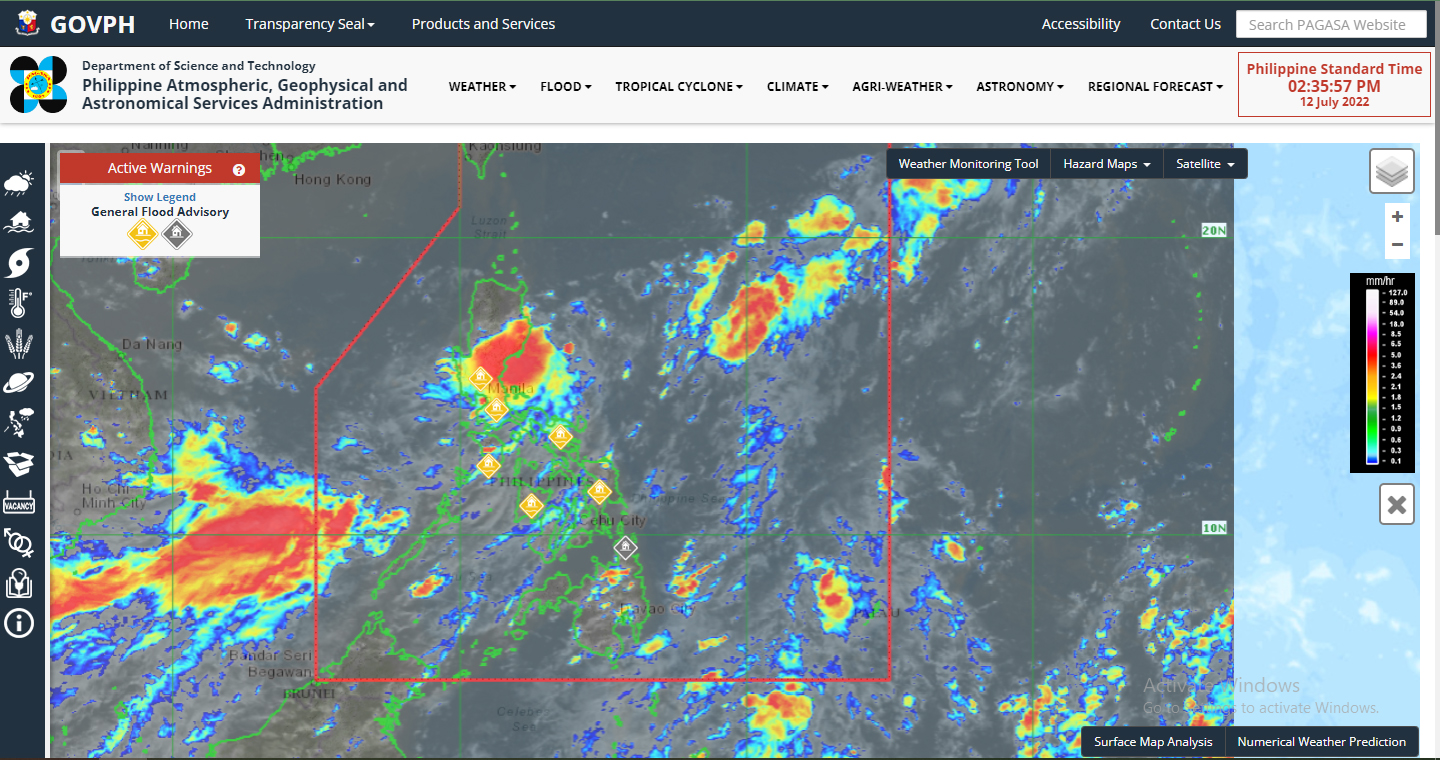
With the southwest monsoon (Habagat) affecting the western sections of the country, the Department of Agriculture Regional Field Office – Cordillera Administrative Region (RFO-CAR) is scheduled to distribute available seed buffer stocks to Habagat-affected farmers in the Ifugao province.
The RFO-CAR’s latest report stated that about 11.9 kilograms of assorted vegetable seeds amounting to P340,860 will be turned over to the Office of the Municipal Agriculture (OMAG) in Banaue.
The Provincial Emergency Operation Centers (EOC) and Task Force, spearheaded by the Agricultural Program Coordinating Officers (APCO) in Ifugao, were also activated and mobilized to validate and assess the affected agricultural areas in the province.
The Habagat brought strong rains, flash floods, and mudslides in Banaue, Ifugao on July 7. The DA-CAR reported that the incident destroyed 120 hectares of rice fields (239 MT), 3 hectares of corn areas, and 78 hectares of high value crops (489 MT). A total of 83 heads of swine were also counted as mortality as of July 11 due to the mudslide. Damage to agriculture was valued at P16.4 M, affecting 700 farmers in the area.
Meanwhile, heavy rainfall and flash floods were also experienced in President Quirino, Sultan Kudarat from July 4 to 7. The incident partially destroyed 148 hectares of rice-producing areas, resulting in a production loss of 199.8 metric tons (MT) as per the latest damage assessment report by the DA RFO XII. Agricultural damage was estimated at about P3.8 M, with all 99 rice farmers in the municipality affected.
Overall, the DA – Disaster Risk Reduction and Management Operations Center (DA-DRRM-OpCen) reported that nationwide agricultural damages due to the monsoon were valued at P27.28 M as of July 12 noontime, devastating 1,303 hectares of agricultural areas and recording a volume of production loss at 928 MT. The total number of Habagat-affected farmers have reached 1,490.
The DA, through its DRRM-OpCen, assured that it will continuously provide all affected farmers and fishers with various forms of assistance, namely:
● Rice, corn, and assorted vegetable seeds;
● Drugs and biologics for livestock and poultry;
● Survival and Recovery (SURE) Program of the Agricultural Credit Policy Council (ACPC);
● Available funds from the Philippine Crop Insurance Corporation (PCIC) to indemnify affected farmers; and
● Quick Response Fund (QRF) for the rehabilitation of affected areas.
The Department is also coordinating with concerned national government agencies, local government units, and other DRRM-related offices for immediate impact assessment and efficient distribution of assistance. ### (Krystelle Ymari A. Vergara, DA-AFID)















